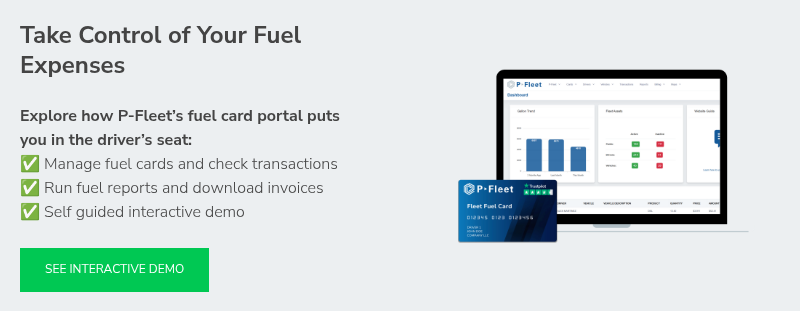Commercial Vehicle Weight Classes
The Federal Highway Administration (FHWA) groups vehicles into the following classifications based on gross vehicle weight rating (GVWR). Classes 3-8 are considered commercial motor vehicles by the FMCSA.
| Truck Class | Duty | Weight Limit (pounds) | Examples | Fuel Types |
| Class 1 | Light duty | 0-6,000 | Small pickup, Toyota Tacoma | Primarily gas, some diesel |
| Class 2a | Light duty | 6,001-8,500 | Full size pickup, F-150 | Primarily gas, some diesel |
| Class 2b | Light duty | 8,501-10,000 | Heavy full size pickup, F-250 | Gas and diesel |
| Class 3 | Medium duty | 10,001-14,000 | Heavy full size pickup, F-350 | Primarily diesel, some gas |
| Class 4 | Medium duty | 14,001-16,000 | Heavy full size pickup, F-450 | Diesel |
| Class 5 | Medium duty | 16,001-19,500 | Small box truck | Diesel |
| Class 6 | Medium duty | 19,501-26,000 | Medium box truck | Diesel |
| Class 7 | Heavy duty | 26,001-33,000 | Garbage trucks, city transit buses | Diesel, CNG |
| Class 8 | Heavy duty | 33,001-80,000 | Semi-truck | Diesel |
Types of Commercial Vehicles
Commercial vehicles come in a wide range for various business purposes. Here is a quick overview of some of the different types of commercial vehicles.
Trucks

Trucks are the most popular commercial vehicle due to their usefulness for business applications. Since the federal legal definition of a commercial vehicle only applies to vehicles that weigh 10,000 pounds or more, only class 3-8 vehicles are considered commercial vehicles.
Here are common names for trucks and their uses;
- Box Trucks: Medium to large-sized trucks with an enclosed cargo area. They are commonly used for transporting furniture, appliances, and other large items.
- Semi-Trucks: Also known as tractor-trailers or 18-wheelers, these large trucks are designed for local, regional, and long-haul transportation and can carry substantial loads.
- Flatbed Trucks: Flatbed trucks have an open, flat cargo area that allows for easy loading and unloading of oversized or irregularly shaped items. They are commonly used in construction, hauling equipment, or transporting goods that cannot fit inside an enclosed truck.
- Refrigerated Trucks: These trucks are equipped with cooling or refrigeration units to transport perishable goods, such as fresh produce, frozen foods, or pharmaceuticals while maintaining a specific temperature.
- Tow Trucks: Specifically designed for towing or recovering disabled vehicles, tow trucks come in different types, including flatbed tow trucks, hook and chain tow trucks, and wheel-lift tow trucks.
- Specialty Trucks: Vehicles usually built on a truck frame with a specific purpose in mind such as fire trucks, ambulances, street sweepers, garbage trucks, etc.
Vans

Vans are great for carrying lighter weight cargo such as people and packages. Here are the two main types of vans;
- Passenger Vans: Passenger vans are designed to transport groups of people. Some passenger vans are used by hotels, airports, or shuttle services.
- Delivery Vans: Small to medium-sized cargo vans used for local or regional deliveries, often used by courier services, small businesses, or e-commerce companies.
Buses

Buses are primarily used to carry larger quantities of people. Here are the types of buses;
- Motor coach: These buses are designed for longer trips between cities. They offer comfortable seating, onboard restrooms, and luggage storage, making them ideal for regional and cross-country routes.
- Transit bus: Designed for short distance travel within cities, transit buses typically operate on fixed routes with frequent stops. They’re built for efficiency, high passenger turnover, and easy boarding, often featuring low floors and multiple doors.
- School bus: Used to transport students to and from school, these buses are instantly recognizable by their yellow color and safety features. They’re built to meet strict regulations for passenger protection.
- Shuttle Buses: Smaller than a typical transit bus, shuttles are often used for airport transfers, hotel transportation, and short routes with lighter passenger loads.
- Minibuses: Smaller than standard buses, minibuses typically seat 8–30 passengers. They’re ideal for private charters, smaller group tours, or routes with lower demand.
Other Types of Commercial Vehicles

Here are some other types of commercial vehicles that don't fit the above categories that are worth mentioning:
- Construction Vehicles: These include specialized vehicles used in the construction industry, such as dump trucks, concrete mixers, cranes, excavators, and bulldozers.
- Utility Vehicles: Vehicles used by utility companies for tasks like repair and maintenance work, such as bucket trucks used by electricians or telecommunications vans used by technicians.
Which Commercial Vehicles Require a Commercial Driver's License (CDL)?
You need a commercial driver’s license (CDL) if you’re operating a vehicle weighing more than 26,000 pounds (Class 7–8). For vehicles in Classes 1–6, a regular driver’s license is usually sufficient, unless you’re transporting 15 or more passengers, hauling hazardous materials, or carrying toxins, in which case a Class C CDL is required. Visit the FMCSA website for complete details on CDL requirements. It's also important to note that some states may extend CDL requirements for additional vehicles, so please refer to your state's laws as well.
Commercial Vehicles Frequently Asked Questions
- Is a box truck a commercial vehicle? Most box trucks would be considered commercial vehicles as most weigh over 10,000 pounds, but many do not require a CDL as they usually weigh less than 26,000 pounds.
- Is a tow truck a commercial vehicle? Yes, most tow trucks would be considered commercial vehicles as they weigh over 10,000 pounds.
- What makes a vehicle a commercial vehicle? Any vehicle that weighs over 10,000 pounds would be considered a commercial vehicle by federal law. Some states extend the definition to other vehicles that weigh under 10,000 pounds. Check your state's laws for full details.
- Is a regular car a commercial vehicle? No, most regular cars would not legally be considered commercial vehicles as they weigh under 10,000 pounds. However, businesses do use cars for commercial use.
- Is an ambulance a commercial vehicle? Yes most ambulances would be considered commercial vehicles as many weigh over 10,000 pounds.
- Is a Ford Transit a commercial vehicle? Ford transits are made in several different sizes and seating configurations, so it depends on the weight and the seating configuration of the vehicle. If it weighs over 10,000 pounds it would be considered a commercial vehicle. Or if it's designed or used to transport more than 8 passengers (including the driver) for compensation, or more than 15 passengers if the transportation is not for compensation.
- Is a work truck a commercial vehicle? Depends on the weight and what state you are registering the work truck in. If it weighs over 10,000 pounds it would be classified as a commercial vehicle by federal law. Some states such as California consider all pickup trucks as commercial vehicles regardless of their weight.
- Is a 1 ton truck a commercial vehicle? Depends on the weight and the state you live in. 1 ton trucks typically weigh 8,000 to 12,000 pounds. If the truck weighs over 10,000 pounds it's considered a commercial vehicle by federal standards.
- Is a bus a commercial vehicle? Yes most buses are considered commercial vehicles as they weigh over 10,000 pounds and are designed or used to transport more than 8 passengers (including the driver) for compensation, or more than 15 passengers if the transportation is not for compensation.
- Is a cargo van a commercial vehicle? If the cargo van weighs over 10,000 pounds, it's considered a commercial vehicle by federal law. Many smaller cargo vans would not be considered commercial vehicles.
- What is a CMV vehicle? CMV stands for commercial motor vehicle. This is any vehicle that meets the federal or a state's legal definition of a commercial vehicle.
Manage Your Commercial Vehicle Fuel Expenses with P-Fleet Fuel Cards
Managing fuel expenses is one of the biggest challenges for commercial vehicle fleet managers, but P-Fleet fuel cards make it easier. With nationwide acceptance and detailed transaction reporting, you can track every gallon purchased, control where and when drivers fuel, and take advantage of cost-plus pricing and discounts that lower your overall costs. Spending controls help prevent unauthorized purchases, while online account management gives you real-time visibility into fuel usage across your fleet. Whether you operate a few vehicles or a large fleet, P-Fleet Voyager and CFN fuel cards give you the tools to manage expenses efficiently and keep your business moving.







